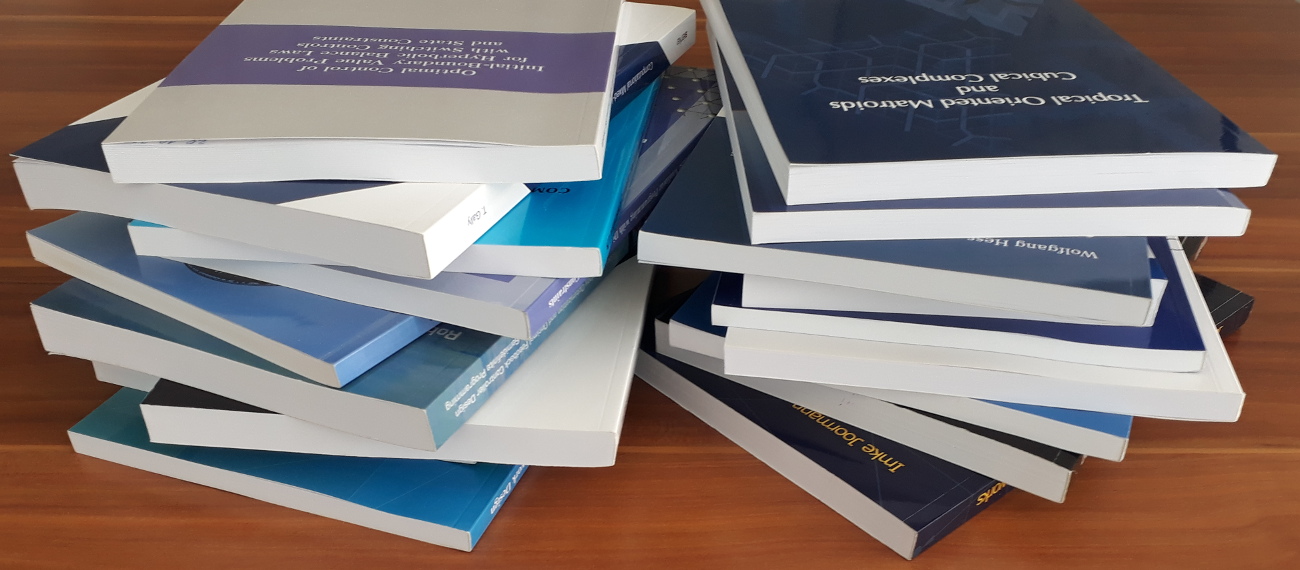Asymptotic Analysis and Numerical Approximation of some Partial Differential Equations on Networks
Nora Philippi
In this thesis, we consider three different model problems on one-dimensional networks with applications in gas, water supply, and district heating networks, as well as bacterial chemotaxis. On each edge of the graph representing the network, the dynamics are described by partial differential equations. Additional coupling conditions at network junctions are needed to ensure basic physical principles and to obtain well-posed systems. Each of the model problems under consideration contains an asymptotic parameter epsilon>0, which is assumed to be small, describing either a singular perturbation, different modeling scales, or different physical regimes. A central objective of this work is the investigation of the asymptotic behavior of solutions for epsilon going to zero. Moreover, we focus on suitable numerical approximations based on Galerkin methods that are still viable in the asymptotic limit epsilon=0 and preserve the structure and basic properties of the underlying problems.
In the first part, we consider singularly perturbed convection-diffusion equations on networks as well as the corresponding pure transport equations arising in the vanishing diffusion limit for epsilon going to zero, in which the coupling conditions change in number and type. This gives rise to interior boundary layers at network junctions. On a single interval, corresponding asymptotic estimates are well-established. A main contribution is the transfer of these results to networks. For an appropriate numerical approximation, we propose a hybrid discontinuous Galerkin method which is particularly suitable for dominating convection and coupling at network junctions. An approximation strategy is developed based on layer-adapted meshes, leading to epsilon-uniform error estimates.
The second part is dedicated to a kinetic model of chemotaxis on networks describing the movement of bacteria being influenced by the presence of a chemical substance. Via a suitable scaling the classical Keller-Segel equations can be derived in the diffusion limit. We propose a proper set of coupling conditions that ensure the conservation of mass and lead to a well-posed problem. The local existence of solutions uniformly in the scaling can be established via fixed point arguments. Appropriate a-priori estimates then enable us to rigorously show the convergence of solutions to the diffusion limit. Via asymptotic expansions, we also establish a quantitative asymptotic estimate.
In the last part, we focus on models for gas transport in pipe networks starting from the non-isothermal Euler equations with friction and heat exchange with the surroundings. An appropriate rescaling of the equations accounting for the large friction, large heat transfer, and low Mach regime leads to simplified isothermal models in the limit epsilon=0. We propose a fully discrete approximation of the isothermal Euler equations using a mixed finite element approach. Based on a reformulation of the equations and relative energy estimates, we derive convergence estimates that hold uniformly in the scaling to a parabolic gas model. We finally extend some ideas and results also to the non-isothermal regime.

